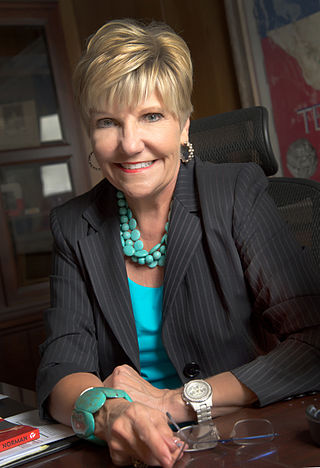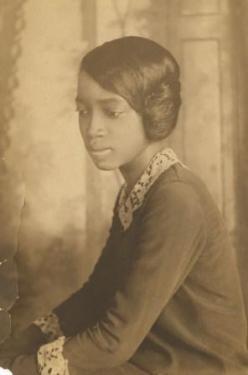
Fort Worth is a city in the U.S. state of Texas and the seat of Tarrant County, covering nearly 350 square miles (910 km2) into four other counties: Denton, Johnson, Parker, and Wise. According to a 2024 United States census estimate, Fort Worth's population was 978,468, the 5th-most populous in the state and the 12th-most populous in the United States. Fort Worth is the second-largest city in the Dallas–Fort Worth–Arlington metropolitan area, which is the fourth-most populous metropolitan area in the United States, and the most populous in Texas.

Tarrant County is a county located in the U.S. state of Texas with a 2020 U.S. census population of 2,110,640, making it the third-most populous county in Texas and the 15th-most populous in the United States. Its county seat is Fort Worth. Tarrant County, one of 26 counties created out of the Peters Colony, was established in 1849 and organized the next year. It is named after Edward H. Tarrant, a lawyer, politician, and militia leader.

The Dallas–Fort Worth metroplex, officially designated Dallas–Fort Worth–Arlington by the U.S. Office of Management and Budget, is the most populous metropolitan statistical area in the U.S. state of Texas and the Southern United States, encompassing 11 counties. Its historically dominant core cities are Dallas and Fort Worth. It is the economic and cultural hub of North Texas. Residents of the area also refer to it as DFW or the Metroplex. The Dallas–Fort Worth–Arlington metropolitan statistical area's population was 7,637,387 according to the U.S. Census Bureau's 2020 census, making it the fourth-largest metropolitan area in the U.S. and the fifteenth-largest in the Americas. In 2016, the Dallas–Fort Worth metroplex had the highest annual population growth in the United States. By 2023, the U.S. Census Bureau estimated that the Dallas-Fort Worth metropolitan area's population had increased to 8,100,037, with the highest numerical growth of any metropolitan area in the United States.
Stop Six is a neighborhood in south-east Fort Worth, Texas (USA).

Monica "Dr. Moe" Frazier Anderson is an American author, journalist, motivational speaker, and Doctor of Dental Surgery.

Barbara Elizabeth Cornelius Price is an American businesswoman and politician who served as mayor of Fort Worth, Texas through 2021. She was first elected to the nonpartisan office on June 18, 2011. Price previously served 2½ terms as the elected Tarrant County tax assessor-collector, from 2001 to 2011. She is a Republican who describes herself as fiscally conservative, deplores polarization and extremist tendencies in both major parties, and professed a commitment to work for the entire community as an elected local official.
Elizabeth Richards Andujar, was a homemaker, civic activist, and politician, the first Republican woman to be elected and serve in the Texas State Senate. From 1973 to 1983, Andujar represented District 12 in Fort Worth, the seat of Tarrant County in North Texas.
Throughout Dallas–Fort Worth, there is a large lesbian, gay, bisexual, and transgender community. Since 2005, DFW has constituted one of the largest LGBT communities in Texas.
Konni Lyn Burton is an American businesswoman who is a Republican former member of the Texas State Senate for District 10. Backed by the Tea Party movement, Burton on January 13, 2015, succeeded Wendy R. Davis of Fort Worth, who vacated the state Senate after her unsuccessful campaign as the Democratic gubernatorial nominee in the 2014 Texas gubernatorial election.
The following is a timeline of the history of the city of Arlington, Texas, USA.
The following is a timeline of the history of the city of Fort Worth, Texas, United States.
The Lenora Rolla Heritage Center Museum is a museum in Fort Worth, Texas that focuses on the history of African Americans in Tarrant County and throughout Texas. It is named for Lenora Rolla who initially raised money to purchase the building and start the museum in 1979. It is operated in the historic Boone House and open by appointment with the Tarrant County Black Historical and Genealogical Society.

Reby Cary was an American educator, politician, and historian in the Dallas–Fort Worth metroplex. He was the first black school board member in Fort Worth and served in the Texas House of Representatives from 1979 to 1985. He was the author of numerous books about the history of African Americans in North Texas.

Lucille Elizabeth Bishop Smith (1892–1985) was an African American entrepreneur, chef, and inventor. She invented the first hot biscuit mix, and has been called "the first African American businesswoman in Texas".

Hazel Bernice Harvey Peace was an African-American educator, activist, and humanitarian in Fort Worth, Texas. The namesake of an elementary school, municipal building, and library youth center in Fort Worth, Peace overcame racial segregation to provide opportunities for African Americans, youth, and women in Fort Worth, Dallas, and throughout the state of Texas.

Hazel Vaughn Leigh was a philanthropist and civic leader in Fort Worth, Texas. As founder and longtime director of the Fort Worth Boys Club, she devoted her life to improving the lives of boys in Fort Worth and Tarrant County. She was the first, and for many years, only female director of a boys' club in the United States. Leigh was inducted into the Texas Women's Hall of Fame in 1993.

Lillian Bertha Jones Horace was an African American author, educator, and librarian from Fort Worth, Texas, best known for her novels Five Generations Hence (1916), Crowned with Glory and Honor, and Angie Brown. These are the earliest novels on record written by an African-American woman from Texas. Horace married and divorced twice, and continued to teach, travel and write throughout her life. At the time of her retirement, she had been an educator for over thirty years.
The Dallas–Fort Worth metroplex has 1.2 million African-Americans, the 2nd-largest metro population of African-Americans in Texas.

The 2021 Fort Worth mayoral election was held on Saturday, May 1, 2021, to decide the mayor of Fort Worth, Texas. Incumbent mayor Betsy Price, who had served as the city's mayor since 2011, announced on January 6, 2021, that she would not seek a sixth term. Ten candidates ran in the primary election. Early voting in person began on April 19, 2021. Since no candidate received a majority of the vote on May 1, the top two finishers, Democrat Deborah Peoples and Republican Mattie Parker, advanced to a June 5, 2021, runoff election. Parker won the runoff and was elected mayor.

Opal Lee is an American retired teacher, counselor, and activist in the movement to make Juneteenth a federally-recognized holiday. She is often described as the "grandmother of Juneteenth".












